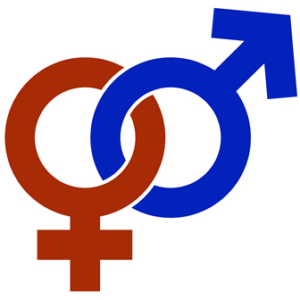Healing Gender Resentment
 When we enter a relationship, we each bring a degree of unresolved gender resentment. Because of this, many relationships suffer serious consequences as soon as something triggers the resentment.
When we enter a relationship, we each bring a degree of unresolved gender resentment. Because of this, many relationships suffer serious consequences as soon as something triggers the resentment.
These patterns are not only personal but are part of our human collective and have been cultivated over millennia of human generations. The patterns of resentment go so deep that they have become a part of our fabric and play out in almost every area of life in every culture. Unless healed they will continue to be handed down from generation to generation.
Gender resentment can play out in a myriad of was. A person who had a very controlling parent can easily over impose their resentment of the parent to their partner and overact in anger when they misperceive a request as being controlling. But, by far the most disruptive gender resentment we hold centres around sexuality. From this base, a whole array of offshoots arise that can appear to have nothing to do with sex. However if we examine them closely their origin will become obvious. Unless these and other types of gender resentments are acknowledged and healed, they are sure to lead to a serious loss of intimacy in and out of bed. And, holding either gender to ransom, demanding they redeem themselves for sins real and imagined, only serves to perpetuate the conflict.
No matter how deep the resentment or how far back it goes, we have the opportunity to break the loop and correct our perception. Trying to change or blame the other and their reactions may have given us a sense of superiority in the past, but the main issue here is not about who is right and who is wrong and what injustices have been done to whom. Rather it is about healing our resentment toward the opposite gender, as well as our self. To do this, we must become willing to look honestly at ourselves and see if what we are projecting to each other is in fact what we cannot tolerate within ourselves. We have to be responsible for the part we are playing and have played in the past in the formation of these resentments as well as what we can do to heal them.
When we make a decision to stop justifying and fuelling the hurts and resentments and instead put in place an ongoing spiritual practice that awakens our intrinsic nature and heals resentments, we take the next crucial step, which is forgiveness. We may need to go back and forgive our self, our parents, a child, brother, sister, friend, past lover, husband, wife, or even God. It does not matter; we will know who needs forgiving.
Most people do not deliberately inflict pain on another; they just react out of misaligned belief patterns and emotional wounds. When we come to accept this, we develop a sense of compassion for both genders, which allows us to view the whole landscape from a much broader perspective. Then instead of holding on to old resentments and hurts, we can feel an innate sense of appreciation for the differences and sameness in each of us.
(This topic is discussed in more details in our book “Reaching Beyond the Dream” in Part 2 of ‘Relationships, Love and Sexuality’)
Blessings and Love,
Angelica and Terence Atman
